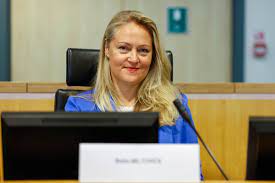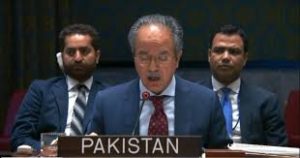European Commission publishes recommendations to tackle energy poverty across the EU

Brussels: Energy poverty affects citizens across every EU country. In 2022, high energy prices together with the cost-of-living crisis meant that an estimated 9.3% of Europeans were unable to keep their homes adequately warm, compared to 6.9% in 2021.
Recognising the need for even more coordinated action to counter the trend, the Commission has today published a series of recommendations on measures and policies that can be adopted by EU countries to tackle energy poverty. Protecting vulnerable citizens and ensuring that Europe’s energy transition is fair and just is a cornerstone of the European Green Deal.
Investment in energy efficiency and renewable energy are among the structural measures included in today’s Recommendation. These measures are designed to have a long-lasting impact, addressing the root causes of energy poverty such as the low energy performance of homes and household appliances, high energy expenditure in proportion to household budgets and lower income levels (exacerbated by inflation). The recommendations are accompanied by a Staff Working Document which contains a more detailed analysis of the recommended measures. Following the recently adopted revision of the Energy Efficiency Directive which includes, for the first time, an EU-wide definition of energy poverty, the Recommendation also outlines how energy poverty can be diagnosed at national level.
Both documents point to the National Energy and Climate Plans (NECPs), as well as The Social Climate Plans, as opportunities for EU countries to reflect today’s recommendations in their policy framework to combat energy poverty. The EU legal framework requires that energy poverty is identified and tackled in the National Energy and Climate Plan (NECP) of each EU country, due to be updated in 2024. EU countries must draft and submit their Social Climate Plans to the Commission by 30 June 2025 in order to avail of the Social Climate Fund.
The publication of the Recommendation and Staff Working Document follows extensive consultations carried out by the Commission with Member States and with stakeholders including consumer and civil society organisations, trade unions, anti-poverty groups, social housing providers, environmental campaigners, health organisations, energy cooperatives and energy providers.
This initiative was accompanied by the renewal of the Joint Declaration on enhanced consumer protection for the winter, originally signed in December 2022. With the support of the Commission, key stakeholders representing consumers, regulators, energy suppliers and distributors pledged to respect common principles and adopt measures, going beyond existing legislation, to support households throughout the 2022-23 winter. Although wholesale energy prices have decreased from the highs reached during last winter, vulnerable customers and those in energy poverty continue to face difficulty paying bills and the cost of living remains high. Therefore, stakeholders have agreed to renew the Joint Declaration for the 2023-2024 winter.
Commissioner for Energy, Kadri Simson, said: ‘Energy poverty is not a new phenomenon in the EU – moving beyond crisis response measures, we must address its root causes so that we overcome it in an effective and sustainable way. Today’s Recommendation focuses on long-term structural measures such as ensuring access to energy efficient housing and appliances as well as renewables, which will help drive Europe’s clean energy transition while ensuring that nobody gets left behind.’
Commissioner for Justice, Didier Reynders, said: ‘The rise in energy prices and cost of living has put millions of consumers in a vulnerable situation. Thanks to our collective efforts at EU and national level, the overall situation has improved compared to 12 months ago. However, the reality is that many consumers are still facing difficulties paying their bills. With winter already around the corner, we must continue doing everything in our hands to battle energy poverty and protect consumers in need.’




